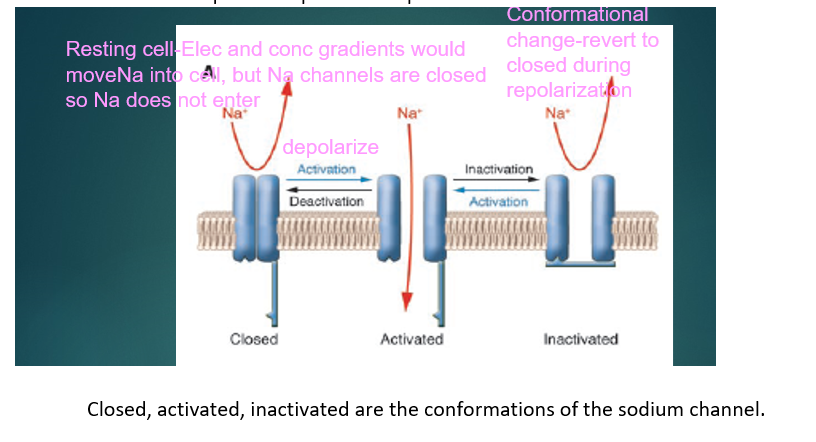The cardiac action potential (AP) explains the widening of the QRS when a sodium channel blocking drug (NCBD) attaches to a pore in the cardiac sodium channel.
Cardiac cells are polarized i.e., there is electrical voltage across the cell membrane due to the difference in ion concentrations (gradients) on the inside vs outside of the cell membrane. These gradients are maintained by pumps. The SA node generates its own electrical impulse causing a change in membrane potential (AP)and fires spontaneously causing depolarization (loss of difference in charge between inside and outside of cell membrane due to opening and closing of ion channels altering permeability). The NA channel is one of the voltage gated ion channels that opens following depolarization and acts as a passageway for sodium ions which precipitates movement of other ions (AP). One AP triggers an AP in the neighboring cell.
So………
• Cardiac Na channels are voltage sensitive proteins belonging to a family of ion channels that are voltage gated (open and closed by changes in membrane potential).
• Na channels open in response to depolarization of cell membranes. NA rushes into the cell. The Na channel must close before depolarization can occur again.

(Sorry for the repetition, but looking at these concepts from different perspectives increases understanding)
• NCBD (Sodium channel blocking drugs)
• Bind to Na channels in activated or inactivated conformations (also called states)
• Slow recovery (time from inactivated conformation to resting conformation)
• Prolong conduction through ventricles
• Decreases force of contraction
• Decreases excitability
• Depress slope of phase 0 of action potential
Next week: Treatment of NCBD OD
This question was prepared by Donna Seger, MD
I am interested in any questions you would like answered in the Question of the Week. Please email me with any suggestion at donna.seger@vumc.org.
Donna Seger, MD
Executive Director
Tennessee Poison Center www.tnpoisoncenter.org
Poison Help Hotline: 1-800-222-1222